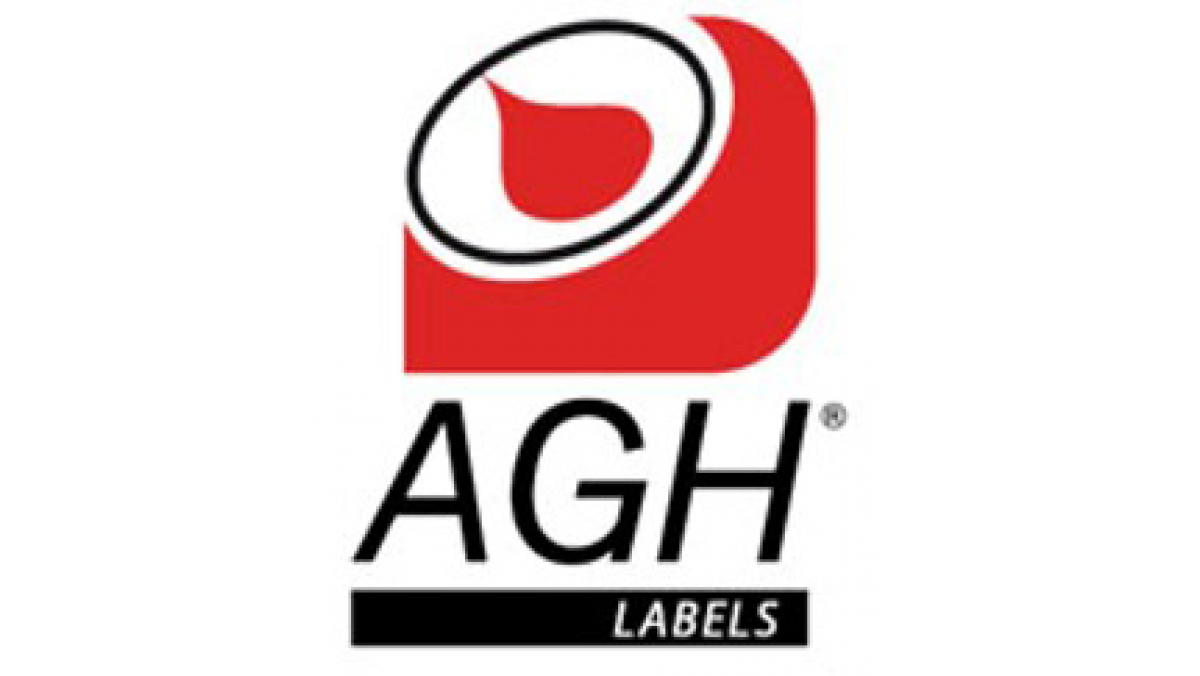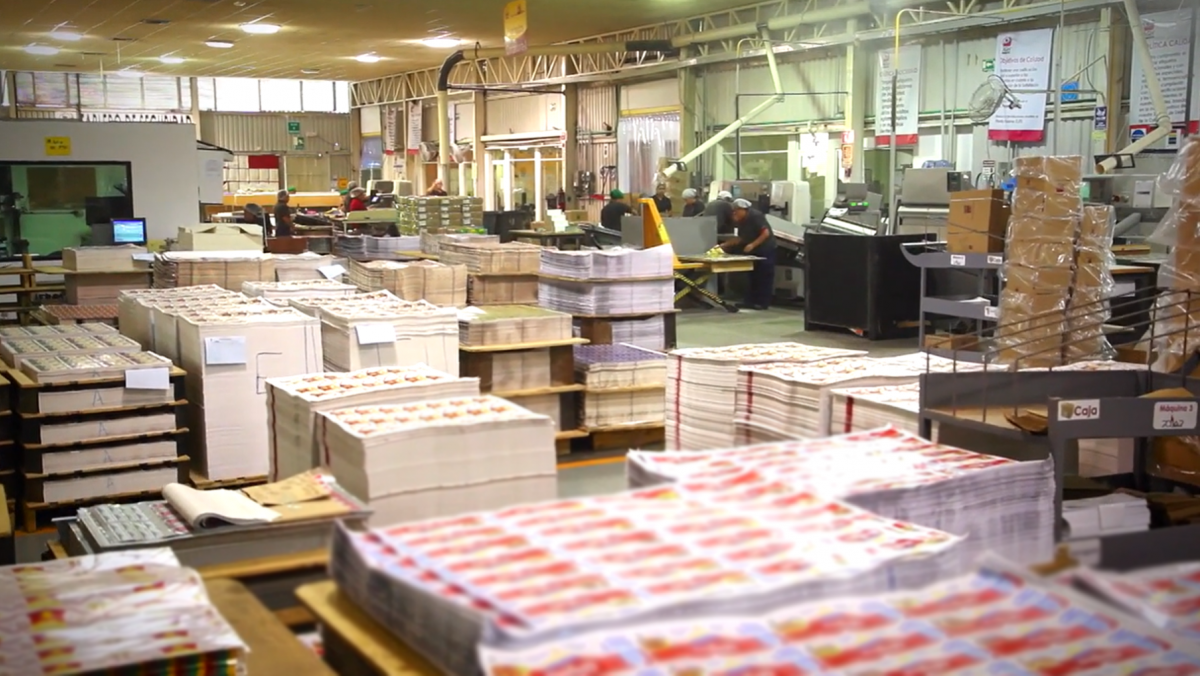Thought leadership: AR Metallizing interview with AGH Labels
2020 has been unprecedented. The global outbreak of the Coronavirus has affected us all. Where service-based businesses have switched to remote working, for manufacturing industries like AR Metallizing, this hasn't been a possibility. Retaining staff on-site to run machinery has been crucial, especially so for those of us who have a part to play in manufacturing and delivering essential and consumable goods.
There was no way to plan for a pandemic or the subsequent turmoil from the Coronavirus. That said, some companies have led the charge with how to deal with a new reality. Quick decision making, socially remote working, adaptation of working practices, dealing with a turbulent economy and, perhaps surprisingly, unexpected opportunities have defined the winners of the past few months.
In a series of interviews with leaders in the industry, our CEO Bart Devos explores best practices, lessons learned and the innovative ways CEO's in the packaging, paper, converting and printing industry have tackled the crisis.

Introduction
AGH labels is a Mexican label producer, based in León, Guanajuato. The company creates, produces and distributes labels for a variety of sectors, including food, beverages, personal care, wine and spirit labels.
The firm is today partnered with private equity firm, Alta Growth Capital, which invests in middle market businesses in Mexico with demonstrable growth prospects. AGH labels was founded by Gerardo Hinojosa Senior who is today Chairman of the Board. The company is today run by his son, Gerardo Hinojosa Junior, who is CEO, and who we intereviewed as part of our thought leadership series.
Innovative solutions
Thinking ahead was an essential approach of Hinojosa Valdes and the AGH team. Three to four weeks ahead of Mexico being locked down, the team were already setting up contingency plans and managing risks. ‘In Mexico, we were a little bit behind Asia and then Europe. We saw what was happening in other parts of the world and realized we could spend time preparing for the situation as best we could,’ explains Hinojosa Valdes.
As well as implementing new safety and hygiene measures, the AGH team hired transportation to collect workers from home, so there was no need for anyone to take public transport. ‘For us, the implementation of private transport was a safety decision and a business continuity decision. Mexico’s public transport is notoriously crowded, and we wanted to be able to ensure that our staff didn’t have to be exposed just to get to and from the factory. We had private transport pick everyone up from their houses. Staff were dropped off at the factories in the morning and then direct to their door at the end of the day,’ says Hinojosa Valdes.

Currency: an additional risk for some companies
The economic fallout as a result of the pandemic was particularly challenging for companies in Mexico because the Mexican peso had some of the most significant currency depreciation. Most of AGH’s supplies come from companies that sell in US dollars, so the firm was buying in dollars and selling in pesos which can affect profit margins.
‘Imagine that one day you’re buying materials at 18 pesos per dollar and the next day you’re buying at 25 pesos per dollar. That was a challenge in particular for firms in Mexico in addition to social distancing and economic volatility. Most of AGH’s largest contracts are now indexed because there is always a currency risk for us. Still, clauses can specify that there has to be a two-month average in the exchange rate before we implement these, so you can’t index immediately. I’ll be honest, there was a lot of stress for us because you’re suddenly buying very, very expensive substrates and expensive ink in dollars and selling in pesos. We were lucky that as part of our contingency plan, we deliberately overstocked and had a lot of material in stock which helped us. We knew that this could happen, so when it did, it was a case of managing the situation, rather than trying to find a new solution or having to absorb a long-term change in profit margins. Risk management and forward planning was a big part of the reason we’ve come through the pandemic so strongly,’ explains Hinojosa Valdes.
Overall, AGH’s planning and contingency plans helped prepare them for the pandemic, and the firm is doing well and is above budget YTD. They expect to exceed their 2020 budget by year-end.

Guaranteeing the supply chain
AGH label a lot of ‘essentials’ including tuna, milk powder for babies, beans, beverages and other Mexican staples. With so many of these foods needed by customers looking to fill up on basic store cupboard foods, the stakes were high to meet demand. Despite the sharp peaks in purchases as a result of panic buying, the firm was able to meet increased customer demand and continue production.
Continued production was also a result of the firm’s oversight and planning: after the safety of staff and production was secured, AGH then moved to guarantee their supply chain. Hinojosa Valdes explains that trusted suppliers were crucial in ensuring the continuity of the supply chain. In essence, a supplier’s commitment to keeping their production going was vital for ensuring AGH could continue their own production. ‘Our head of procurement had a rolling 8 am conference call each day with Silvia Garcia-Luengo, VP Sales Manager at AR Metallizing. Because AR Metallizing produces in the US and we import into Mexico, we had to be sure we could get the paper, and that AR Metallizing would continue to produce it. We needed updates and assurances so that we knew we had the supplies we needed, especially as we were also managing customers who had increased their order volumes. AR Metallizing’s availability to keep us up to date and the understanding of how critical the situation was and their own dedication and measures to keep production running, was invaluable. We knew that we had guaranteed the supply chain, which was crucial for our business and peace of mind.’

What’s next for Mexico?
It’s been AGH’s philosophy to ‘prepare for the worst and hope for the best.’ It’s been the company’s long-term mindset, rather than something they’ve implemented as a result of the pandemic. The firm has also been aggressive with their pursuit of organic growth, and they plan to continue to chase ‘two-digit’ organic growth into the latter half of 2020 and beyond.
That said, Hinojosa Valdes thinks that the next few months will be challenging for the economy, although he is optimistic about AGH’s outlook. The firm has managed to navigate the pandemic successfully, and looking forward, Hinojosa Valdes explains that typically AGH’s market segments recover quickly after a recession. Food and beverage products might see a slowdown, but purchases improve faster than different segments. It’s a trend that’s usually seen in both the USA and Mexico.
‘Typically, we see that even when the whole economy slows down, if you disaggregate anything related to the food and beverage sector, it always remains higher than the overall GDP and usually recovers faster. We expect this situation to be the same and that the food and beverage sector – and companies like us which supply it – will recover quickly,’ says Hinojosa Valdes.
The results of the US election, which itself could also be influenced by the pandemic, are also likely to affect companies in Mexico, given the strong trade between both countries.
Sustainability
Many of AGH’s clients remain committed to their move towards more sustainable packaging materials, and the pandemic hasn’t changed this, especially for larger corporate clients who have made public commitments to sustainability. For smaller players, if cost and profit margins are squeezed as a result of the pandemic, Hinojosa Valdes expects that some brands could step away from looking at incorporating sustainable packaging – at least in the short term.
‘For some of our clients, the cost of sustainability isn’t part of the narrative at all – they are wholly committed to sustainable packaging materials, whatever the price. For example, they are happy to order FSC paper even if it costs 15 or 20% more. For others, especially here in Mexico, other factors are at play. Regional customers can be more focused on cultural and geopolitical issues, which tend to be very pressing at a regional level – think poverty or inequality, for example. I expect that larger clients will continue to meet their commitments to sustainable materials, regardless of how the pandemic and economic situation plays out, however,’ says Hinojosa Valdes.

Efficient communication
AGH were already using digital systems and video conferencing but have found that in the past months, they have formalized and made video communication more efficient.
As a company, AGH has always prioritized face-to-face meetings, particularly for the sales team and meeting with clients. The team have kept up with videoconferencing and now use a single system for all internal and external discussions. Hinojosa Valdes thinks the move to a single system has made the team more efficient in terms of communication. ‘Before we were using Skype, Whatsapp, Zoom, and Microsoft Teams. Now we do it all in Teams, and I think that’s more efficient than our previous online communications and has brought standardization.’